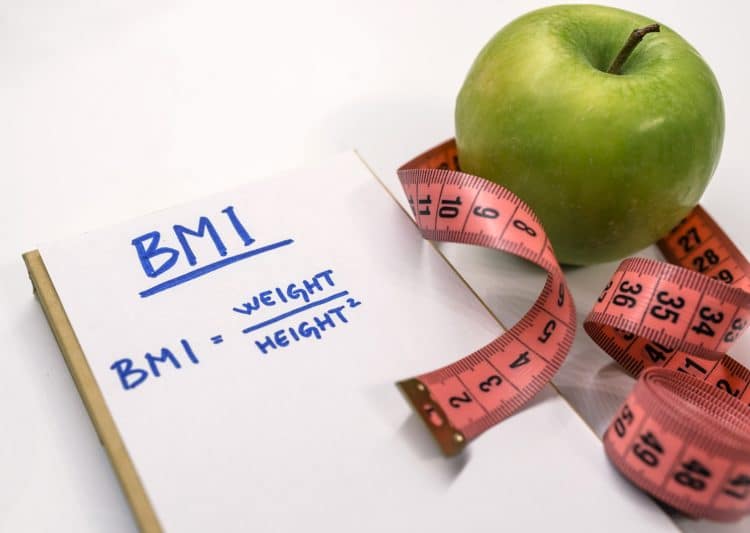Prolonged fasting has evoked a lot of curiosity lately. People keen to improve their health want to know if it offers health benefits over and above regular intermittent fasting. The terms ‘prolonged fasting,’ ‘water fasting,’ or ‘extended fasting’ are the same. In a prolonged fast, you do not eat anything for 3 to 5, 7, or even 21 days.
The idea of not eating a morsel for multiple days can seem daunting and extreme. However, prolonged fasting can be the ultimate way to reset your body and reach your wellness goals. While much research has been done on various intermittent fasting regimens like 16/8 fasting, 12/12 fasting, or OMAD fasting, prolonged fasting research is limited, and we have gathered the best information with what we have.
You can consider prolonged fasting to be the big brother of intermittent fasting. Prolonged fasting increases the fasting time and magnifies the results! With intermittent fasting, you generally consume three meals daily in the feeding window. But with prolonged fasting, you go without food for three days or more.
Calculate Your Autophagy Timeline
Find out exactly when your body enters autophagy based on your unique profile, diet, and fasting protocol.
Calculate My Autophagy Window →It is natural to have questions and doubts about prolonged fasting. Why would you need to starve for days on end? Is it safe to do prolonged fasting? What results to expect from prolonged fasting? How long can one fast safely? We will look into this in this article, so keep reading!
What is Prolonged Fasting? How Many Days Can You Fast Safely?
Prolonged fasting, or extended fasting, is a type of intermittent fasting where you don’t consume any calories for at least two days or more. During these fasting periods, which usually last between 2-5 days and can even go up to two weeks, you’re only allowed to drink water, unsweetened tea, and black coffee.
Interestingly, fasting has deep roots in human history. During the era of our hunter-gatherer ancestors, food was not always easily accessible, forcing early humans to withstand extended periods without sustenance. This challenge led to the development of our ability to store energy as body fat, which could be used during times of food scarcity. Without this capacity to save and utilize energy, human survival would have been highly improbable.
So, how long should you fast if you’re generally healthy and don’t have any underlying health problems? Well, going without food for a few days shouldn’t cause any issues. But keep in mind that nowadays, we’re used to eating meals regularly, so our bodies might not be ready to go without food for too long. That’s why it’s a smart idea to limit your prolonged fast to around three days or 72 hours. If you’re thinking about fasting for longer, it’s always best to talk to a healthcare professional and follow their advice.
What are the Benefits of Prolonged Fasting?
Prolonged fasting has several potential benefits. When you do prolonged fasting, your body enters survival mode, where your digestive and other systems get a rest, starting other processes in the body that are highly beneficial. You should consider prolonged fasting as a lifestyle add-on and not a diet. Here are its benefits:
Weight Loss
There are two different states of your body — the fed and the fasting. In the fed state, you eat regularly. Hence the insulin levels in your body are high. At this time, energy is drawn from your food, and any excess calories are stored in the fat cells to be used later.
When you are in a fasted state, your insulin levels fall. This signals your body to utilize the stored energy in the fat cells to perform bodily functions. This process is known as ketosis, where the body utilizes ketones in the bloodstream as energy. On average, ketones are produced after 8-10 hours of fasting.
Thus, when you practice prolonged fasting and skip your daily intake of 1,500-2,000 calories, there are lesser calories to burn, prompting weight loss. However, you must ensure you do not overcompensate for lost calories by overeating after fasting. Concentrate on a balanced and healthy diet to achieve weight loss.
Another important point is that fasting increases the body’s metabolic rate by 3-14% [1]. In a fasted state, with a calorie deficit, this translates to a further burning of 100-275 calories per day. This means that your body will burn calories faster, and you will consequently lose weight faster. However, it is interesting to note that this increase in metabolic rate is not sustained after three days of fasting.
It is not advisable to do prolonged fasting more than twice a month. Hence, while prolonged fasting will cause you to shed a few pounds, it cannot be considered a long-term weight loss method. For this, you will be better off doing some form of intermittent fasting, like 16/8 intermittent fasting.
Increased Longevity
When you do prolonged fasting, autophagy kicks off in your body. This is a biological process that is essential for cell renewal and cell health. During autophagy, the body cells will destroy intracellular bacteria and viruses while also getting rid of any damaged cells. In other words, autophagy (meaning self-eating) is a natural cleanse for your body. [2]
Fasting will also trigger excess human growth hormone (HGH) secretion. This hormone is responsible for burning fat, boosting metabolism, and making you look much younger. It is interesting to note that HGH is sometimes called the “fountain of youth.” Though HGH production decreases with age, it has been shown that a two-day fast can increase HGH production by as much as 500%. [3]
Improved Memory
Our memory declines as we age. However, if you practice prolonged fasting, it can stimulate brain cell regrowth and regeneration of the brain’s hippocampus region. [4]
The hippocampus is part of the brain that is responsible for memories. Prolonged fasting also increases the amount of the hormone BDNF in the brain, which plays a big role in neuronal growth and survival and is essential for learning and memory.
Increase in Energy Levels
Some people think that if they do prolonged fasting, they will be depleted of energy and nap all the time. On the contrary, when you do prolonged fasting, your energy levels will go up with the burning of stored fat to be used as an alternative energy source.
Increase in Stem Cell Reserves
The stem cells present in our body have the potential to develop into many different kinds of cells. You can call them the repair system for your body. If some cells in the body are damaged, they can be repaired by deploying stem cells. As we age, our stem cell reserves decrease, and increased stress hastens their depletion. Studies show that prolonged fasting can help maintain stem cells. [5]
Decreased Inflammation
Inflammation is the root cause of many chronic diseases like high blood pressure, arthritis, and cancer. With prolonged fasting, there is a decrease in inflammation markers, which is a precursor to good health. [6]
Reduction in Oxidative Stress
Every cell in our body requires oxygen to survive. However, oxygen is reactive and causes oxidative stress. Environmental toxins and smoking can hasten oxidative stress. During prolonged fasting, your body switches to “repair mode,” stimulating antioxidant mechanisms. [7]
What are the Side Effects of Prolonged Fasting?
Well, it is not all fun and frolic during prolonged fasting. After all, you are drastically changing your eating pattern from 3–4 times a day to three or more days of fasting. A study was done with 768 participants who fasted for at least 48 hours. In the study, 72% of the participants reported side effects, including fatigue, hunger, trouble sleeping, and dizziness. [8]
How to Counter Side Effects of Prolonged Fasting?
It is important to ease into extended fasting. It will lessen the impact and side effects of prolonged fasting. You can start with a 12/12 fast, work up to one meal a day fasting, and then try a prolonged fast. This will prepare both your mind and your body for the extended fast.
It is also essential to stay hydrated during the prolonged fast. Remember that 20% of our daily water intake comes from food. Hence, when you do an extended fast, add a few more glasses of water to your daily intake. Also, water will sate your hunger, which is a big advantage when doing a demanding prolonged fast.
Ensure that you get a lot of rest during prolonged fasting. Also, you can stave off hunger pangs with black coffee, plain tea, or lemon water. Remember not to do intense exercises when fasting for an extended period.
Who Should Not Do Prolonged Fasting?
While an extended fast is okay for most healthy people, do consult a doctor before doing it, especially if you are:
- Underweight (BMI of less than 18.5)
- Pregnant or breastfeeding
- Under 18 years of age
- Suffering from any eating disorder like anorexia or bulimia
- Suffering from type 1 diabetes
- Having gastrointestinal disorders like ulcers or gastritis
Read also: BMI Chart for Men and Women: Learn If Your Weight is Healthy
How To Prep Yourself For An Extended Fast?
With prolonged fasting, you are setting yourself up for a wild ride, both mentally and physically. You will experience periods of focus as well as periods of sluggishness. Sometimes you will be “hangry” (a combination of hunger and anger). Hence, it would make sense to schedule your fasting days when you don’t have demanding and stressful events planned.
If you are a newcomer to prolonged fasting, it makes sense to take 3-4 days to prepare yourself for the prolonged fast. You can do this by eating smaller portions at mealtimes, gradually reducing your daily calorie intake, or even trying intermittent fasting before prolonged fasting to ensure that your body is ready for the long fast of three days or more.
What to Drink While Prolonged Fasting?
First and foremost, ensure that you drink enough water, preferably a gallon daily. You must ideally drink even more than that during fasting. Some other fasting-proof drinks are sugar-free plain tea, unsweetened coffee, and lemon water. They will not add calories yet keep you satiated for a long time.
How Do I Break a Prolonged Fast?
It might be too much of a temptation to start bingeing on food the moment you finish your prolonged fast but refrain from doing so. It is crucial to reintroduce food to your system slowly and steadily.
Following your urges and eating a monster meal right after breaking your fast could put you at risk of refeeding syndrome. In this potentially lethal condition, your body will rapidly change electrolyte and fluid levels.
The ideal way to break your prolonged fast is with a light meal, a smoothie, a salad, or a light soup. As your body adjusts to the food, you can start eating larger meals. However, it may take a day or two to get used to large meals after ending a prolonged fast.
FAQs
How often should you do prolonged fasting?
Experts recommend that you do prolonged fasting one time per season, i.e., four times a year, to reap the full benefits of this fantastic schedule.
What can you have during a prolonged fast?
Prolonged fasting is an extreme calorie restriction for three days or more. During prolonged fasting, you can have only water, unsweetened tea or coffee, or lemon water.
How to know when to stop prolonged fasting?
Look out for symptoms like dizziness, loss of consciousness, nausea and vomiting, diarrhea, a burning sensation in the stomach, stomach pain, or chest pain. Stop fasting immediately if you experience any of the above symptoms.
Conclusion
Now that you know the pros and cons of prolonged fasting, you can decide whether it is for you. Prolonged fasting has several health benefits, but nothing stands above the advice of a doctor. Please ensure that you are medically cleared to undertake a prolonged fast. A prolonged fast can be a great way of testing your mental and physical fortitude, but please ensure you stay within your limits.
References
Fitness Volt is committed to providing our readers with science-based information. We use only credible and peer-reviewed sources to support the information we share in our articles.
- “Enhanced Thermogenic Response to Epinephrine After 48-h Starvation in Humans – PubMed.” PubMed, 1 Jan. 1990.
- Alirezaei, Mehrdad, et al. “Short-term Fasting Induces Profound Neuronal Autophagy.” PubMed Central (PMC), 14 Aug. 2010.
- “Augmented Growth Hormone (GH) Secretory Burst Frequency and Amplitude Mediate Enhanced GH Secretion During a Two-day Fast in Normal Men – PubMed.” PubMed, 1 Apr. 1992.
- Baik, Sang‐Ha, et al. “Intermittent Fasting Increases Adult Hippocampal Neurogenesis.” PubMed Central (PMC), 5 Dec. 2019.
- Cheng, Chia-Wei, et al. “Prolonged Fasting Reduces IGF-1/PKA to Promote Hematopoietic Stem Cell-based Regeneration and Reverse Immunosuppression.” PubMed Central (PMC).
- “Interleukin-6, C-reactive Protein, and Biochemical Parameters During Prolonged Intermittent Fasting – PubMed.” PubMed, 1 Jan. 2007.
- Vázquez-Medina, José Pablo, et al. “Prolonged Fasting Does Not Increase Oxidative Damage or Inflammation in Postweaned Northern Elephant Seal Pups.” PubMed Central (PMC), 25 June 2010.
- Finnell, John S., et al. “Is Fasting Safe? A Chart Review of Adverse Events During Medically Supervised, Water-only Fasting.” PubMed Central (PMC), 20 Feb. 2018
Tip: If you're signed in to Google, tap Follow.













